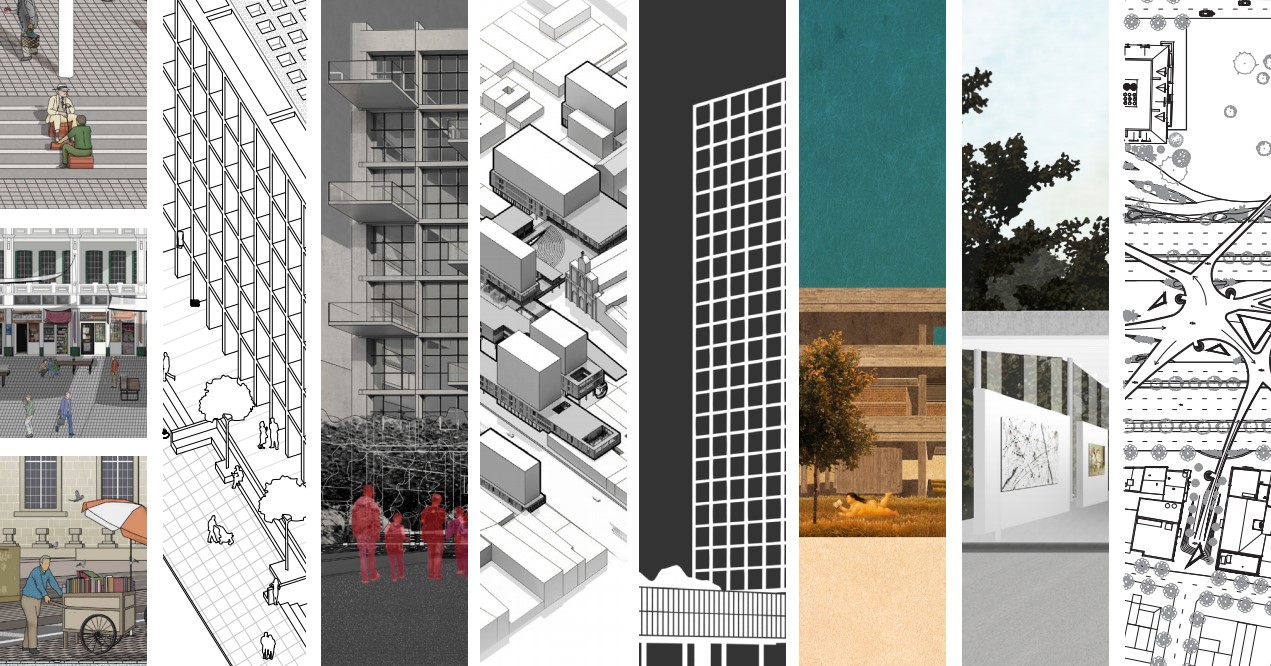Positions in Practice | Bogota (2016)
(IN)Tangible memory of the centre of Bogota
Students: Konstantinos Apostolidis, Eva Alberini, Ben Mcghee, Dore Blay, Valentina Benčić, Yoana Yordanova, Milda Kulviciute, Eve Hocheng, Dilara Hoş, Jesper van den Toorn, Hannah Barth, Laura Amsing, Apurva Apurva Singh, Lucas Schram
Title: Positions in Practice, Bogotá
Semester: 2016
Teachers: prof. dr. ir. Tom Avermaete, prof. dr. ir. Klaske Havik, dr. ir. Jorge Mejia Hernandez, Oscar Castro Andrade, J. Gosseye
The Graduation Studio “Positions in Practice” (2015-2016) of the Chair of Methods and Analysis in Delft focused on the urban context of Bogotá, as a laboratory for the definition of architectural positions. The studio attempted to develop a critical position vis-à-vis the attitudes that architects, especially those coming from other regions, have developed towards cities in the Global South as Bogotá. The realm of architecture holds a large body of analytical methods but increasingly these are no longer adjusted to the realities of the urbanity that we encounter in the Global South. Hence, the challenge of this Graduation Studio was to adjust existing analytical methods and develop new ones that resonate more adequately with the contemporary urban condition. The Graduation Studio “Positions in Practice” also questioned the way that architects and urban designers intervene in contemporary urban contexts such as Bogotá. Too often architects and urban designers have held that the solution to deal with vivid social urban conditions is to design new and strong spatial counter-forms. The Graduation Studio aimed to explore other strategies and methods of intervening in the urban condition of Bogotá.
Their studio was part of a larger investigation “Constructing the Commons,” provided by the Chair of Methods & Analysis, and accompanied by guest professors Yoshiharu Tsukamoto and Momoyo Kajima of Atelier Bow Wow. In this project, the commons are understood: 1 As a series of concrete architectural and urban figures, which represent an idea of commonality. As well in Western and in Non-Western contexts this idea of commonality seems to be largely absent form the contemporary ways in which the city is transformed or extended, and needs urgent reconsideration. 2 As the rituals, pleasures and politics of co-operation that articulate an architectural project. In this view, an architectural project is not a single-authored venture, but rather a complex and layered process that depends upon multiple agencies that establish a commonality. Through research and design we want to explore this idea of an architectural project as a ‘common enterprise.’
From this double perspective, the Graduation Studio hopes to contribute to the on-going debates in a variety of fields that aim to rethink the commons, as a reaction to the challenges that many contemporary cities are facing. Further, with its focus on the commons, it hopes to spark new ideas for urban interventions in the city of Bogotá.
More information and documentation about this project can be found here.
